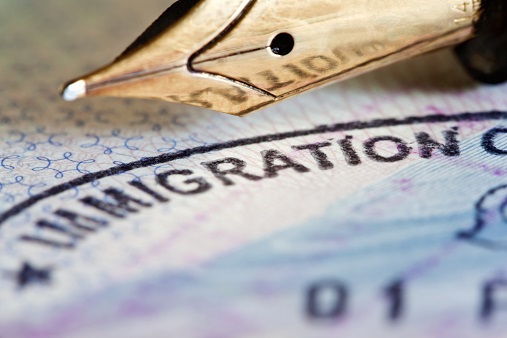The FDA recently issued a draft guidance titled, “FDA’s Voluntary Qualified Importer Program” (VQIP). FDA was required to establish the VQIP by the Food Safety Modernization Act. The VQIP is a voluntary, fee-based program for the expedited review and importation of foods from importers who achieve and maintain a high level of control over the safety and security of their supply chains. The guidance includes twelve sections and addresses numerous aspects of the VQIP in question and answer format, including:
- The benefits VQIP importers can expect to receive
- The eligibility criteria for VQIP participation
- Instructions for completing a VQIP application
- Conditions that may result in revocation of participation in VQIP
- Criteria for VQIP reinstatement following revocation
The draft guidance lists the following benefits of the VQIP:
- FDA will expedite entry into the U.S. for all foods included in an approved VQIP application (VQIP foods).
- FDA will limit examination and/or sampling of VQIP food entries to “for cause” situations (i.e., when the food is or may be associated with a risk to the public health), to obtain statistically necessary risk-based microbiological samples, and to audit VQIP.
- In the circumstances identified in the previous bullet, FDA will examine an entry and collect samples at the VQIP food destination or other location preferred by the VQIP importer. If exportation is warranted, FDA will assist in fulfilling an importer’s request to U.S. Customs and Border Protection (CBP) to export from the port preferred by the importer.
- FDA will expedite its laboratory analysis of “for cause” or audit samples of VQIP entries to the extent possible in accordance with public health priorities.
- FDA will maintain a VQIP Importers Help Desk dedicated to responding to questions and resolving issues raised by VQIP importers.
- FDA will post a publicly available list of approved VQIP importers on a VQIP Web page. VQIP importers may choose not to be listed on the VQIP importers list.
To be eligible for the VQIP, an importer must satisfy the following criteria identified in the draft guidance:
- Have a three-year history of importing food into the U.S.
- Have a Data Universal Numbering System (DUNS) number.
- Use paperless filers/brokers who received a passing rating during their last FDA Filer Evaluation.
- Do not import food subject to an import alert or Class 1 recall.
- Not be subject to an ongoing FDA administrative or judicial action (e.g., Import Alert, injunction, and debarment), or have a history of significant non-compliances relating to food safety.
- To the extent applicable, be in compliance with the supplier verification and other importer responsibilities under the applicable FSVP, juice HACCP, or seafood HACCP regulations.
- Have a current facility certification for each foreign supplier of food you intend to import under VQIP.
- Develop and implement a VQIP Quality Assurance Program (QAP).
- Not have any Customs and Border Patrol (CBP) penalties, forfeitures, or sanctions that are related to the safety and security of any imported FDA-regulated product for the last three years.
- Pay the annual VQIP user fee before October 1 of the year in which you intend to participate.
The draft guidance discusses the QAP in some detail. A satisfactory QAP must address the following elements:
- Corporate Quality Policy Statement - Provide the corporate quality policy statement relating to food safety and security throughout the supply chain. Explain how the quality policy is communicated to all employees throughout the organization and to non-applicant entities involved in implementing the QAP.
- Organizational Structure and Functional Responsibilities - Provide an organizational chart or written explanation of the management structure of the organization. Provide a written explanation of the functional responsibilities for individuals within your organization involved in developing, implementing, and maintaining the QAP.
- Food Safety Policies and Procedures - Establish policies and procedures to ensure food safety from source to entry (e.g., temperature and storage controls).
- Food Defense Policies and Procedures - Provide a written description of the VQIP’s food defense system.
- Experience and Training - Identify the experience and training requirements for employees responsible for implementing the VQIP QAP
- QAP Implementation - Provide procedures for ensuring the VQIP QAP is current and appropriately implemented, including procedures for auditing and updating the QAP and for providing updates to the QAP in the VQIP application.
- Records - Provide written procedures for establishing and maintaining records relating to the structure, processes, procedures, and implementation of the VQIP QAP.
The draft guidance states that FDA will review VQIP applications for completeness and data accuracy and for eligibility for VQIP. FDA will review the applicant’s compliance history and the compliance history of all foods and foreign suppliers listed in the application and all non-applicant entities associated with the import transaction within the supply chain for each food, including the filers/brokers. FDA will also review the QAP to evaluate whether the applicant is adequately controlling factors relating to the safety and security of the food the applicant intends to import.
The draft guidance identifies the following reasons FDA may disapprove a VQIP application:
- The application is incomplete;
- The QAP is inadequate (e.g., the policies and procedures do not ensure that food safety requirements are met);
- The applicant does not meet one or more of the VQIP eligibility requirements and does not provide an adequate alternative or justification;
- The applicant provides inaccurate data or information; or
- The applicant makes false or fraudulent statements in the application.
The 28-page draft guidance answers many other specific questions about the VQIP as well. A copy of the draft guidance document can be found here.
For more information, please contact the Barnes & Thornburg LLP attorney with whom you work or one of the following attorneys in the firm’s Food, Drug & Device Group: Lynn Tyler at (317) 231-7392 or lynn.tyler@btlaw.com; or Hae Park-Suk at (202) 408-6919 or hae.park.suk@btlaw.com.
Visit us online at www.btlaw.com/food-drug-and-device-law-practices.
© 2015 Barnes & Thornburg LLP. All Rights Reserved. This page, and all information on it, is proprietary and the property of Barnes & Thornburg LLP. It may not be reproduced, in any form, without the express written consent of Barnes & Thornburg LLP.
This Barnes & Thornburg LLP publication should not be construed as legal advice or legal opinion on any specific facts or circumstances. The contents are intended for general informational purposes only, and you are urged to consult your own lawyer on any specific legal questions you may have concerning your situation.
Visit us online at www.btlaw.com and follow us on Twitter @BTLawNews.










/Passle/6488d4630e7e25c9ac9f834a/SearchServiceImages/2024-08-22-21-09-42-814-66c7a9167c25ae3ecd362787.jpg)

/Passle/6488d4630e7e25c9ac9f834a/SearchServiceImages/2024-08-21-16-53-04-583-66c61b702c11c56cda8987a4.jpg)
